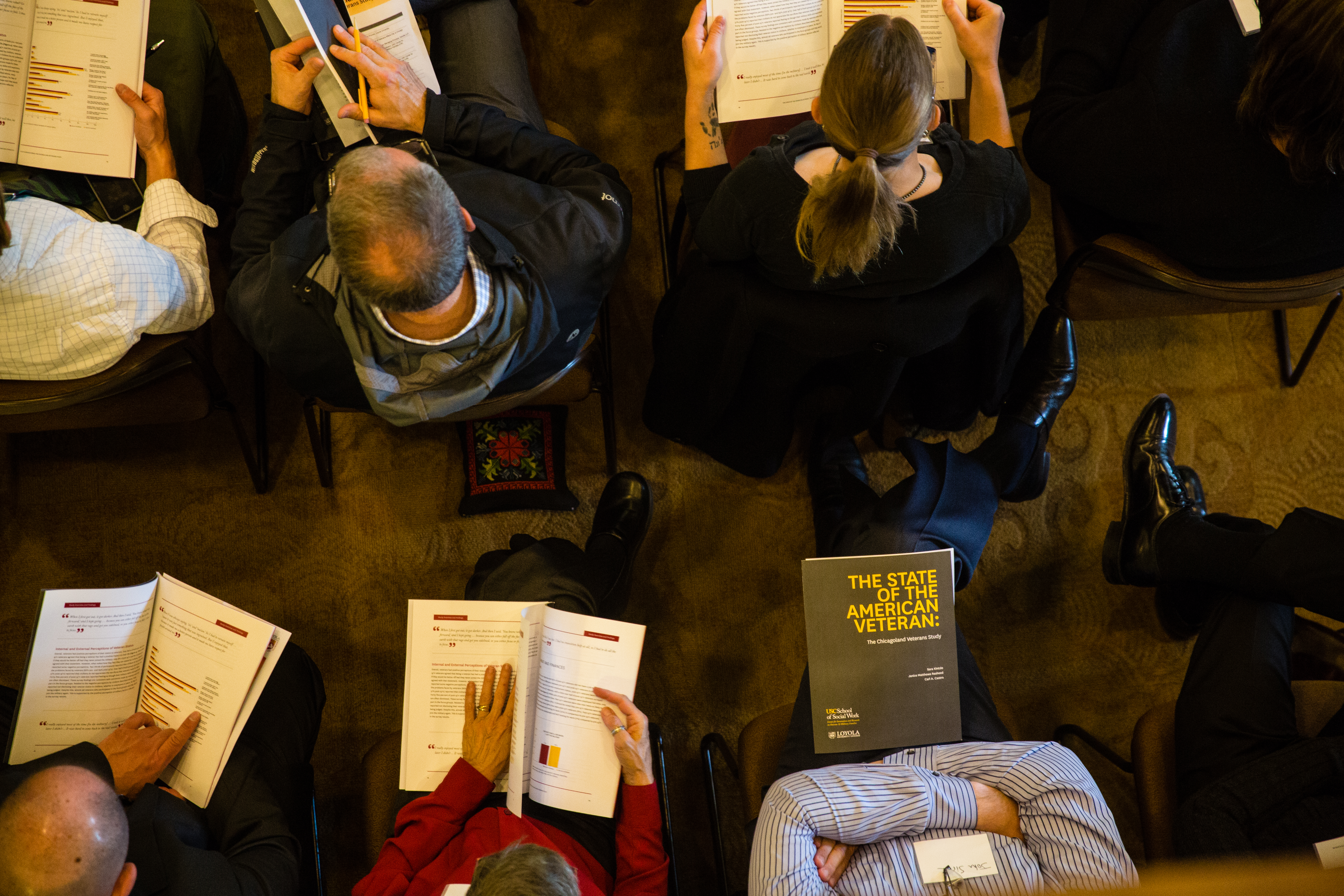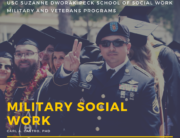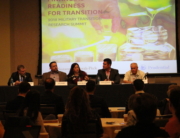by Claudia Bustamante
Veterans across the nation are unprepared for life after military service, according to a new University of Southern California study.
A report by the Center for Innovation and Research on Veterans & Military Families (CIR) at the USC School of Social Work of veterans living in and around Chicago found that a majority of veterans, primarily those serving after the Sept. 11 terrorist attacks, experienced transition challenges and needed time to figure out what to do after the military.
The Chicago study is the third time the USC center has examined a local military population. Similar efforts have been conducted in Southern California in Los Angeles and Orange counties. While unique to the Chicago area, similarities among each study’s findings point to a need for a larger, nationwide transition effort.
“Although veterans in each community have their own distinct needs and experiences, we are seeing an overarching theme across the nation,” said Sara Kintzle, lead author and research assistant professor at the USC School of Social Work.
“Veterans need support that includes preparing for military transition, managing expectations of post-service life, addressing challenges early, and creating communities that are ready to welcome veterans with a strong, connected network of support.”
Chicago study findings
The State of the American Veteran: The Chicagoland Veterans Study outlined the findings of a survey that began last summer of nearly 1,300 veterans living in and around Chicago. The study, conducted in partnership with Loyola University Chicago, explored such areas as transition challenges, life satisfaction, employment and finances, housing, health and access to veteran services.
“The main thing we learned from this study is that many Chicagoland veterans were unprepared for their transition out of the military and subsequently are still facing significant challenges that impact their post-service well-being,” Kintzle said.
Key findings include:
- More than six in 10 veterans left the military without a job, expecting to quickly find meaningful employment. Of those post-9/11 veterans working full-time, 83 percent had annual salaries below the Chicago median income level $61,598.
- Over 45 percent of post-9/11 veterans reported their military skills and experiences were often dismissed by employers.
- Half of pre-9/11 veterans left the military without securing permanent housing or living arrangements.
- Nearly one in five post-9/11 veterans reported being homeless in the last three months.
- A majority of Chicagoland veterans held positive views of their health, with almost 80 percent of pre-9/11 and 76 percent of post-9/11 veterans indicating good to excellent health. Yet, despite these high self-assessments, over a third of post-9/11 veterans had probable post-traumatic stress disorder (39.8 percent) or depression (36.3 percent) and were at risk for suicide (32.6 percent).
- Nearly one in four post-9/11 veterans at risk for suicide did not seek help.
Comparisons to Los Angeles
The lack of preparation for the transition from military to civilian life was also evident in Los Angeles County, home to the largest population of veterans nationwide.
Though more veterans arrived in Los Angeles without a job (79.5 percent) than they did in Chicago, the latter reported earning significantly less. More Los Angeles veterans also reported unstable housing conditions and higher rates of homelessness.
Rates of probable depression and PTSD were also higher among Los Angeles post-9/11 veterans (45 percent) than their Chicago counterparts. However, a third of Chicago post-9/11 veterans were at risk for suicide. By comparison, 15 percent of Los Angeles post-9/11 veterans had considered suicide, and 10 percent had developed a plan.
The study also concluded that veterans in both areas experienced numerous challenges that could not be properly addressed by a single veteran-serving organization. Further, many of those organizations were focused on meeting extreme conditions, like homelessness, severe health issues, and chronic unemployment, and few dealt with early intervention, prevention and holistic services.
In Los Angeles, the data has been used by local organizations to identify veteran needs, and create and adjust programs to meet the gaps in services. Chicago hopes to mirror that approach.
“The information gained from this study will allow us to target our future research efforts to better understand some of the differences unique to the Chicago area,” said Janice Matthews Rasheed, study investigator and professor at Loyola University Chicago.
“This is a starting point that will help us develop relevant social policy for the state and begin to address service barriers and gaps for veterans and military families.”
The Chicago study was funded by the Robert R. McCormick Foundation and Deloitte.








